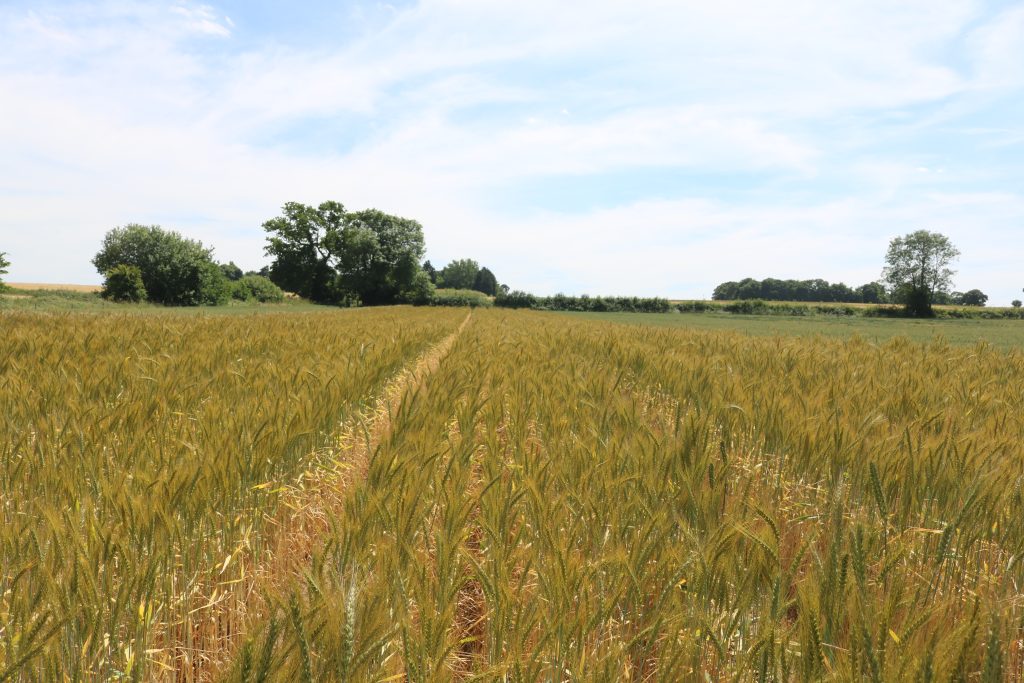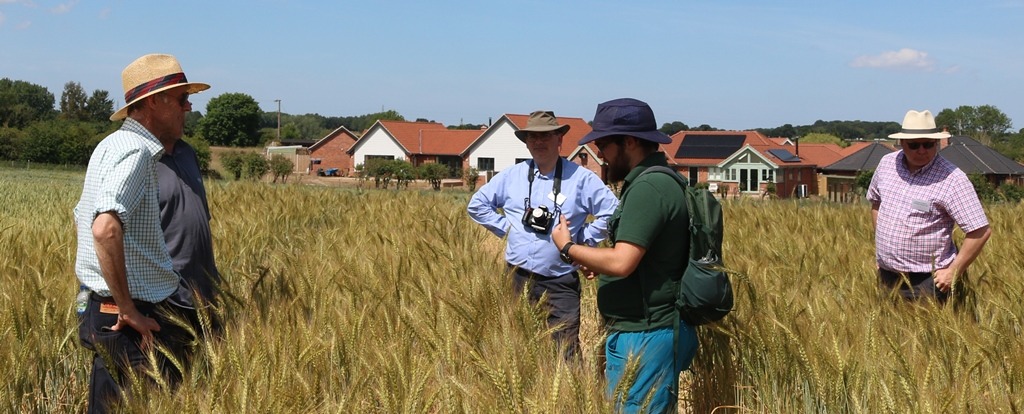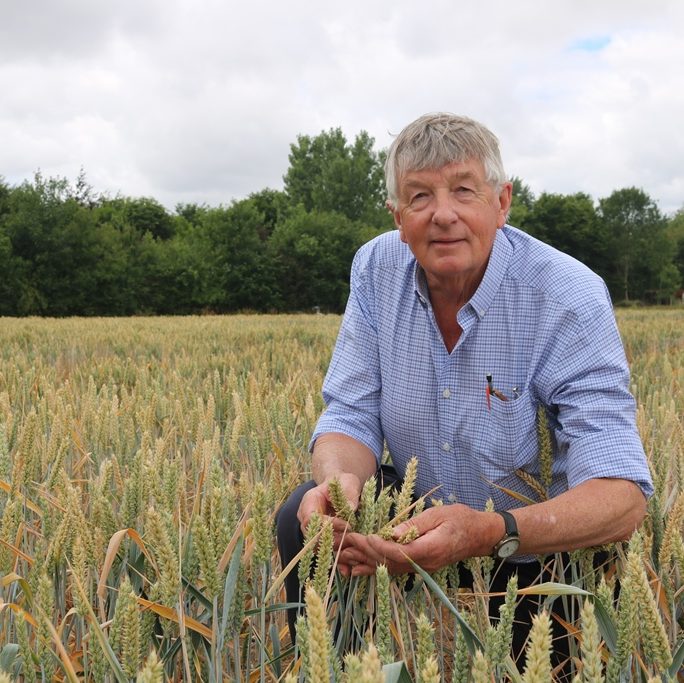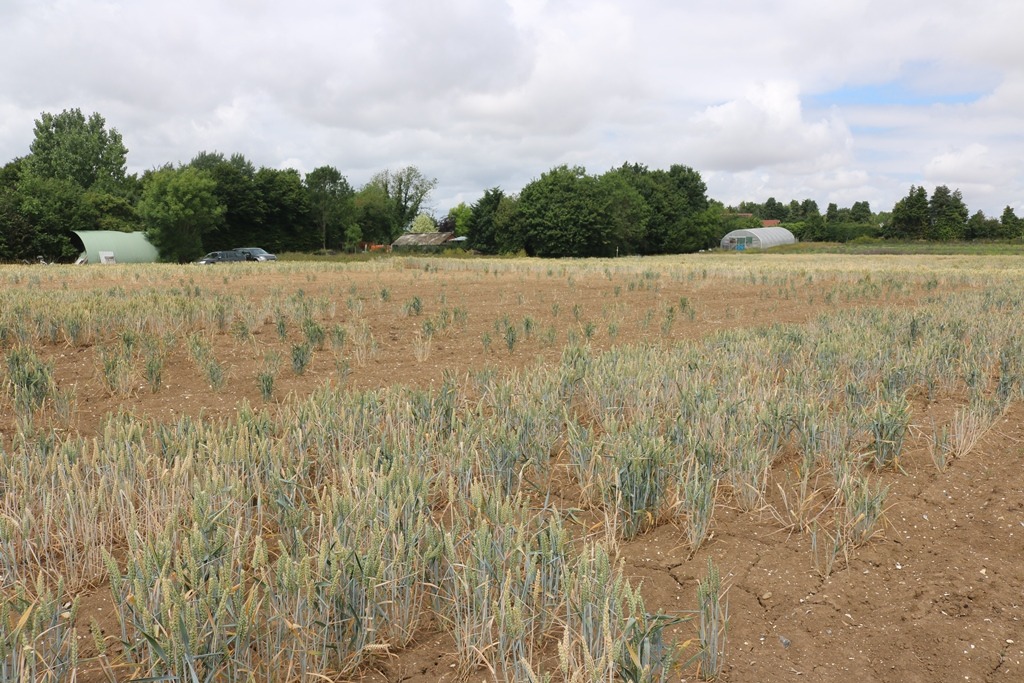Project Overview
Over the last 2 years, we have been putting the Watkins 788 landrace variety to test through analysis by scientists at the John Innes Centre and Harper Adams University, through on-farm trials by our Slug Sleuths and from slugs sent in by our Slug Scouts. Watch this video to find out what the results were of this incredible project.
Although this project has now come to a close, we are underway with another slug-focused project; SLIMERS. Make sure to join the slug circle to keep receiving updates and join in our mission to tackle arable farmings biggest pest:
Results
Watkins 788 is one of a collection of landrace wheats currently being screened for interesting traits by scientists working on the Defra-funded Wheat Genetic Improvement Network (WGIN) programme.
10 Slug Sleuths, BOFIN farmers conducted trials for this project by following an in-field trial protocol drawn up by slug behaviour expert Professor Keith Walters of Harper Adams University.
Results can be found in the video above or by clicking here.

BOFIN members are taking part in what’s believed to be the first ever field trial of wheat to see if it’s resistant to slugs. Those interested can now join the Slug Circle.
Researchers at John Innes Centre have identified the potential trait in one of a diverse collection of landrace wheats currently being screened for properties of interest.
Alongside this line, some of the growers taking part in the trial are also testing an elite wheat, bred by UK plant breeder John Blackman, that may have the same property.
“We decided to screen some of the Watkins material for slug resistance as this was identified as a priority,” says Dr Simon Griffiths of JIC who carried out the work as part of the Defra-funded Wheat Genetic Improvement Network (WGIN).
This lab-based research singled out Watkins 788 as a variety slugs consistently spurn. The aim of the trials is to determine if this is also the case in the field, where the wheat will be the only food source available.
Ten farmers from Devon to Yorkshire have been growing the wheat in 20x20m plots within fields known to have a problem with slugs.
A protocol for how the trial is managed has been drawn up with the help of research staff at JIC working with Professor Keith Walters of Harper Adams University. He’s led an AHDB-funded project into slug behaviour that concluded in 2021.


Meanwhile, wheats bred by independent UK plant breeder John Blackman suffered sorely from slugs last autumn. But curiously there was one line the slimy pests barely touched. The site at Great Abington, near Cambridge, on alluvial, heavy boulder clay, is where John multiplies up promising lines and selects those to go forward for National List trials.
“I had about 30 pre-NL1 multiplications, but many of these were on a part of the site that suffered heavy rainfall soon after drilling in early November,” he recalls. Slugs moved in and hollowed out much of the seed before it had even germinated. “We never expected the slugs, but they were worse than we’ve ever had them.
“The pellet application we applied was too little, too late. Of the 30 lines, only 10 can be salvaged.”
One of these, located right in the centre of the worst affected area, is a KWS Santiago/Graham cross that appears relatively unscathed, despite all of the other candidates in the surrounding plots being almost completely obliterated.
“Every plant you get from an F1 cross is different,” explains John. “This one appears to have something in its genetics the slugs don’t like.” John kindly offered all of the remaining wheat seed from this particular cross to be included within the BOFIN trial. “This level of losses in an NL1 prospect is a disaster. Let’s hope something positive comes of it,” he says.
Four of the ten BOFIN members have been growing John’s wheat alongside the Watkins. Overseen by the scientists involved, the trial protocol was finalised through consultation with the trial farmers and through discussion with members of the BOFIN Slug Circle wheat.
Farmers, scientists and anyone curious about slug-resistant wheat or slug behaviour are encouraged to join the Slug Circle to gain insight on the project, share experience and shape how it evolves.
If there is a trait that can be bred into modern wheats, farmers in the Seed Circle will be the first to try it. This may take many years, but the aim will be to work with scientists to gain an insight into slug behaviour in the field and co-design strategies that will combat the pest in conjunction with genetic resilience.
“Slug management usually focuses on control of the pest, mainly through applying pellets,” points out Keith. “There is so much we now understand about slug behaviour that we can develop with growers, bringing in aspects of crop palatability.”
The aim is to develop understanding of farming systems at the same time as developing the next generation of wheats, explains Simon. “This is a far more sustainable approach than traditional plant breeding where the two are developed in isolation. It’s made possible through the introduction of new plant-breeding techniques that considerably shorten the timespan it takes to bring a new trait to market,” he notes.
